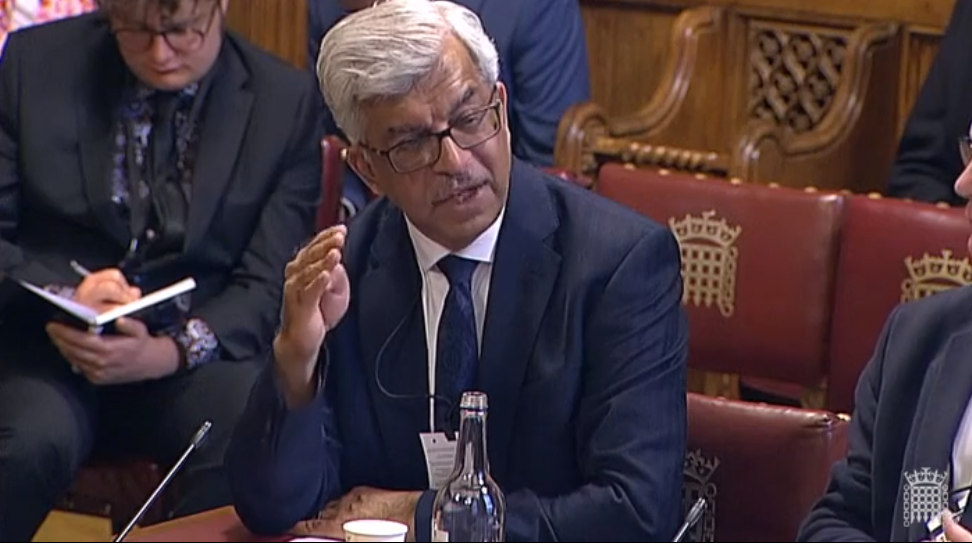Today, the House of Lords Science and Technology Select Committee published its report on “Ageing: Science, Technology and Healthy Living”, highlighting the lack of progress on addressing health inequalities and the increasing challenge of multimorbidity.
The report finds that:
- New science has potential to improve healthy ageing benefiting the individual, the NHS and society
- The UK is a global leader in drug development and new technologies with promising advances
- However, the government is missing its key healthy ageing targets and must act now
- Inequalities in healthy life expectancy are stark; COVID-19 has highlighted concerns
- There is evidence that the rate of multi-morbidity is increasing; designated clinicians are required
Starkly, ethnic minority groups and the most deprived groups spend almost 20 years longer living in poor health than the least deprived. Although much of the evidence for the report was gathered prior to the start of the COVID-19 pandemic, the report acknowledges that the pandemic has exposed existing health inequalities.
[1] The Society, as part of the
Inequalities in Health Alliance, strongly supports the report’s recommendation that the government should “set out a clear plan for reducing health inequalities over the next Parliament”.
The report also finds that the government’s “Ageing Society Grand Challenge” target of ensuring people have five extra healthy years of life by 2035 will not be met. The Society supports the report’s recommendation that a clear government strategy is needed to address this, that accounts for the many dimensions of the challenge. For example, in addition to health inequality, the report recognises multimorbidity (having two or more long-term conditions, particularly prevalent in older people) and polypharmacy (the prescription of multiple drugs) as growing challenges. Furthermore, the current healthcare system is not well-designed to treat people with multiple conditions. The report cites
evidence from the Society that polypharmacy is linked to negative health outcomes for patients, and is costly for NHS. This is something that the Society’s President, Professor Sir Munir Pirmohamed, expanded on when
giving oral evidence to the Committee:
Actually, when you have 15 drugs, there are three, four or five-way interactions going on, together with your renal and hepatic functions, which compounds the problem and leads to the adverse drug reactions that are common in this age group and often not picked up in routine clinical care.
When you have a very complicated patient with seven diseases and on 15 drugs, deciding which one to stop and having that conversation with the patient is quite complicated.

The Society advocates for investment in multidisciplinary teams and integrated care pathways. In line with this, the report cites Sir Munir on the need for multidisciplinary teams covering care of the elderly, clinical pharmacology, pharmacy and general practice to solve the problems of polypharmacy, but cautions that:
we do not have a model of care like that at the moment.
As part of the
Clinical Pharmacology Skills Alliance (CPSA), the Society is calling for investment in the UK clinical pharmacology workforce to help support such a model of care. As a result of the COVID-19 pandemic, the importance of integration of research into care is something that has been widely recognised as a priority. Clinical pharmacologists are experts in the development and use of medicines; applying clinical pharmacology principles at all stages of therapeutics’ research, development and use can help establish not just whether a drug will work but crucially, whether it will be safe. The Society is calling for a clear workforce strategy for clinical pharmacology that is backed by - and benefits - industry, NHS, and the government.
In addition to improving care pathways to treat people with multiple conditions, research should also be whole-person centred. However, the traditional research paradigm focuses on one target, one disease and one treatment – often overseen by multiple specialists in secondary care pathways. Further, people with multiple conditions are often excluded from clinical trials. Clinical pharmacologist, Dr Lauren Walker, told the Committee that:
We should look at whether we should have elderly investigation plans, or multimorbidity investigation plans, where we ensure that we recruit a cohort of people into trials who are truly representative of the population we are prescribing to.
The Society supports the report’s recommendations that the Medicines and Healthcare products Regulatory Agency (MHRA) should ensure that older people are included more frequently in clinical trials. In line with our
Vision for Equality, Diversity and Inclusion in pharmacology, we would also advocate for a review of the UK regulatory environment to help ensure that trial participants are representative of the patients needing treatment.